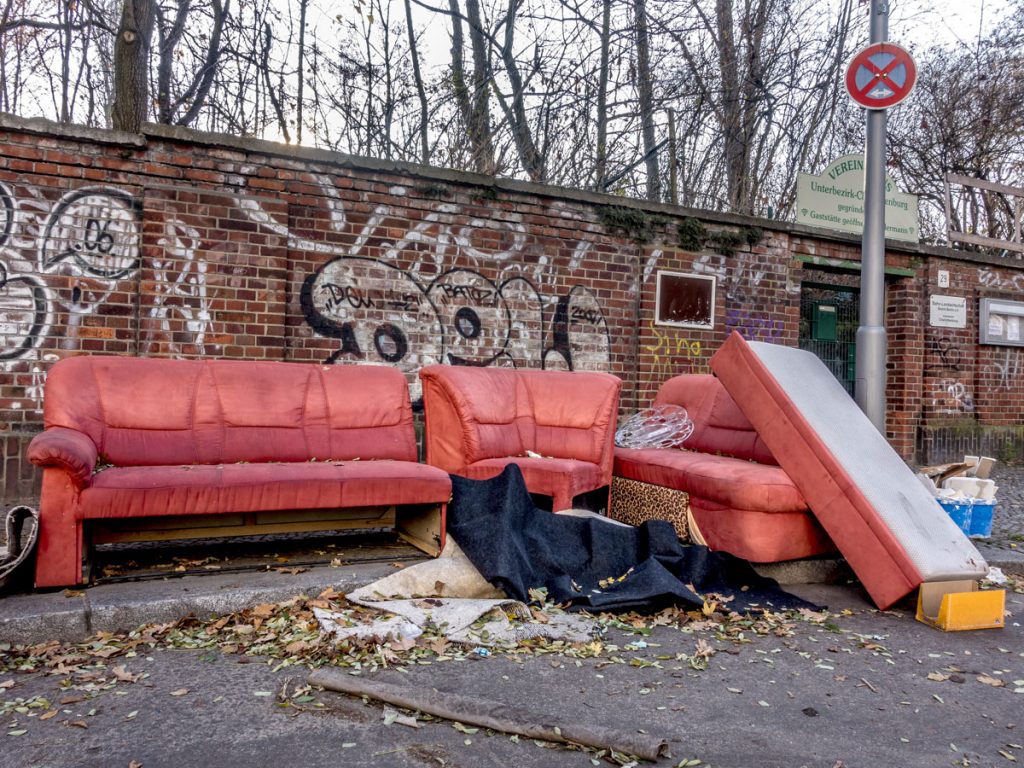Despite today’s easy access to trendy and affordable home furnishings, not all furniture retailers are created equally. As with fast fashion, people are wising up to the pitfalls of “fast furniture,” realizing that this type of consumerism comes at a moral cost with poor environmental impact. Stay informed and look out for these 6 dirty secrets that fast furniture retailers don’t want you to know about.
- They don’t own their own factory. Marketing companies posing as furniture companies, these misleading direct-to-consumer furniture outfits seldom own or even manage their own factories or supply chains. They outsource their cheap furniture production to other countries, such as China or India, where labor, pollution and quality control go unregulated. High quality furniture doesn’t come from mass production that needs to duck from the EPA.
- What goes in must come out — including poison. Many times, these companies use fabrics that are dyed and treated using chemicals that are harmful for the environment and people. This is dangerous not only to the workers manufacturing the textiles, but to the consumers who buy them. Be wary of off-gassing (releasing) of volatile organic compounds (VOCs) from furniture purchases. Wood preservatives and many flame retardant fabrics release VOCs in high quantities, making them notoriously toxic, especially in an enclosed, indoor space without ventilation.
- They claim to be “green” but do the bare minimum. Retailers and furniture makers will often brag that they are “sustainability compliant” when they have simply offshored their environmental footprint to another country so they’re not technically polluting in the United States. They continue to pollute rivers, chop down trees and put workers at risk to make their mediocre dining chairs and bed frames — just not in their own backyard. Rarely do manufacturers go above and beyond simply meeting basic standards. Look for companies that commit to recycling, replanting trees and taking care of their workforce, whether at home or abroad. Sustainably sourced wood products plays a big role in the life cycle of a piece of furniture.
- They’re a short-term fix. Instead of family heirlooms passed down from generation to generation, much of the furniture sold today is made cheaply under the assumption that it will be replaced within a few years. As millennials move from city to city and change apartments on average every two years, an increased demand for inexpensive, easily accessible furnishings has been met with the inferior quality and ready availability of fast furniture. This is where your $30 particle board bookcases and low-quality pieces come into play–this cheap new furniture has only a fraction of the lifespan of eco-friendly furniture like solid wood dining tables and coffee tables that are made to last for decades even in high traffic areas like your dining room and living room.
- They’re riding on trends. Fast furniture pressures buyers into wanting things they don’t need. By marketing according to home decor and interior design trend forecasts, they create items in fad styles that will look dated in a few seasons, and likely won’t even be durable enough to become a second-hand piece. Ultimately, they use advertising to convince buyers to get the next, new thing, whether or not it’s essential.
- It’s one of the biggest polluters. Every year, Americans landfill more than 9 billion tons of furniture. When it’s cheap and easy to get your hands on, it makes sense that many people see furniture as more or less disposable. This means great profits for furniture stores, but at what cost to the planet’s resources? And beyond trashing furniture itself, the production of textiles, which are used in its manufacture, are also responsible for some devastating environmental effects. Dozens of toxic chemicals originate from dyeing faux upholstery fabrics, some 30 of which cannot be removed from the water supply. The wood used for home furnishings has similarly led to deforestation, and is of major concern for the Congo Basin in Central Africa as well as the Solomon Islands.
Please don’t contribute to the fast furniture crisis. Shop with reputable retailers and builders that have a commitment to all aspects of sustainability. Make furnishing your home an Earth-conscious and enjoyable experience.
WRITTEN BY AARON CORDOVA

